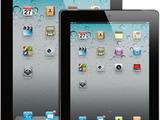Can Apple Really Spark A 'Cheaper' iPhone Storm In China?
Research company Canalys recently stated that Apple's smartphone market share in China has dropped from 9% in the first quarter to 5% in the second quarter, marking the lowest share since Q4 of 2010. Meanwhile, Samsung topped the list with an 18% market share, followed by Lenovo, Coolpad, ZTE, Huawei. Xiaomi's smartphone shipments surpassed those of the iPhone, ranking sixth in the Chinese market.
It is evident that Apple's development situation in the Chinese market is not optimistic. According to AllThingsD, Apple will hold a new product launch event on September 10th to unveil the new iPhone. Based on the timing of the last two years' iPhone releases and AllThingsD's history of leaks, this information seems fairly credible.
In addition to the iPhone 5S, the public may be most concerned about whether the "affordable" iPhone will make an appearance. Some analyses suggest that the introduction of the "affordable" iPhone could significantly increase Apple's market share in China, thereby reversing the company's recent downturn in the country.
This viewpoint should be approached with caution. Considering the uniqueness of the Chinese market, for a significant portion of consumers, what might be more appealing than the performance of the iPhone is the "sense of superiority" that owning an Apple phone brings.
While it's difficult to quantify the number of Chinese consumers influenced by this "sense of superiority," based on my personal experiences, those who keep up with technology tend to choose phones more rationally, making them less susceptible to the allure of "superiority." For other ordinary consumers, however, this "sense of superiority" is almost the key factor driving their purchase of an iPhone. In fact, there are far more consumers in the latter group than the former.
Compared to flagship iPhones, a "cheap Apple" does not provide the same "sense of superiority" to ordinary consumers.
Additionally, considering costs and Apple's brand premium, the "affordable" iPhone will not be particularly cheap. This can be seen from the pricing of the iPad mini. The "affordable" iPhone is likely to be priced around 3000 yuan. Currently, the price of last-generation flagship phones from Sony and Samsung also hovers around 3000 yuan. Therefore, when it comes to satisfying the "sense of superiority," why choose an "affordable" iPhone over a last-generation flagship phone if the budget is the same? (After all, outsiders don't know when you bought the flagship phone, but they can immediately tell when you bought the "affordable" iPhone.)
Under the aggressive marketing campaigns of Samsung, the brand influence of the Galaxy S series has changed significantly. The Galaxy S4 has, to some extent, taken away the "sense of superiority" previously associated with the iPhone 5. Thus, Samsung's old flagship, the Galaxy S3, is likely to become a strong competitor to the "affordable" iPhone.
Some might argue that as the "affordable" iPad, the iPad mini has sold well in China, so the "affordable" iPhone will follow suit. However, compared to the iPad, the iPad mini offers a key advantage in portability in addition to price, whereas the "affordable" iPhone only has a price advantage over its regular counterpart.
Therefore, considering certain characteristics of ordinary Chinese consumers, it may be premature to conclude that the "affordable" iPhone will significantly boost Apple's market share.
The title image is from ecoreseau.



